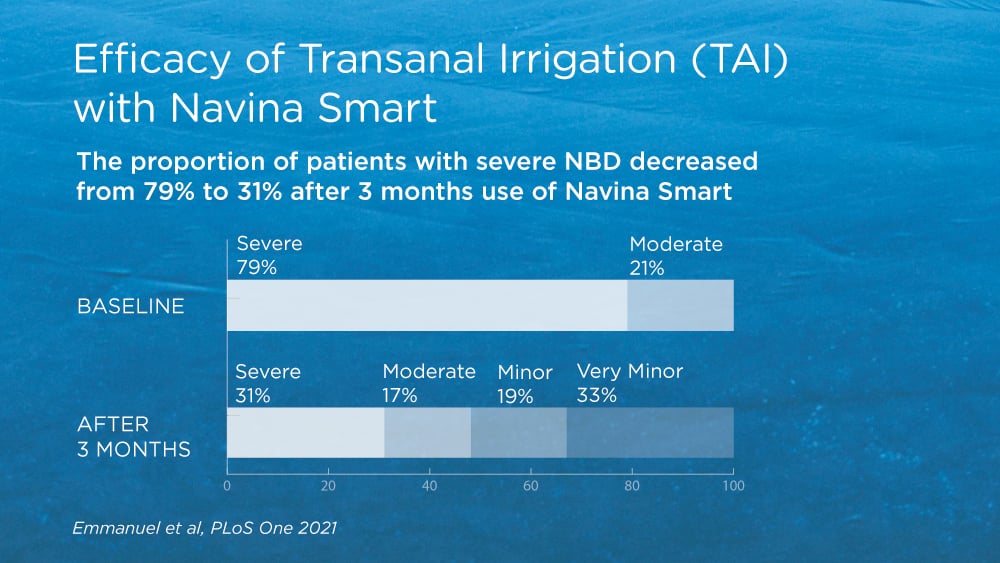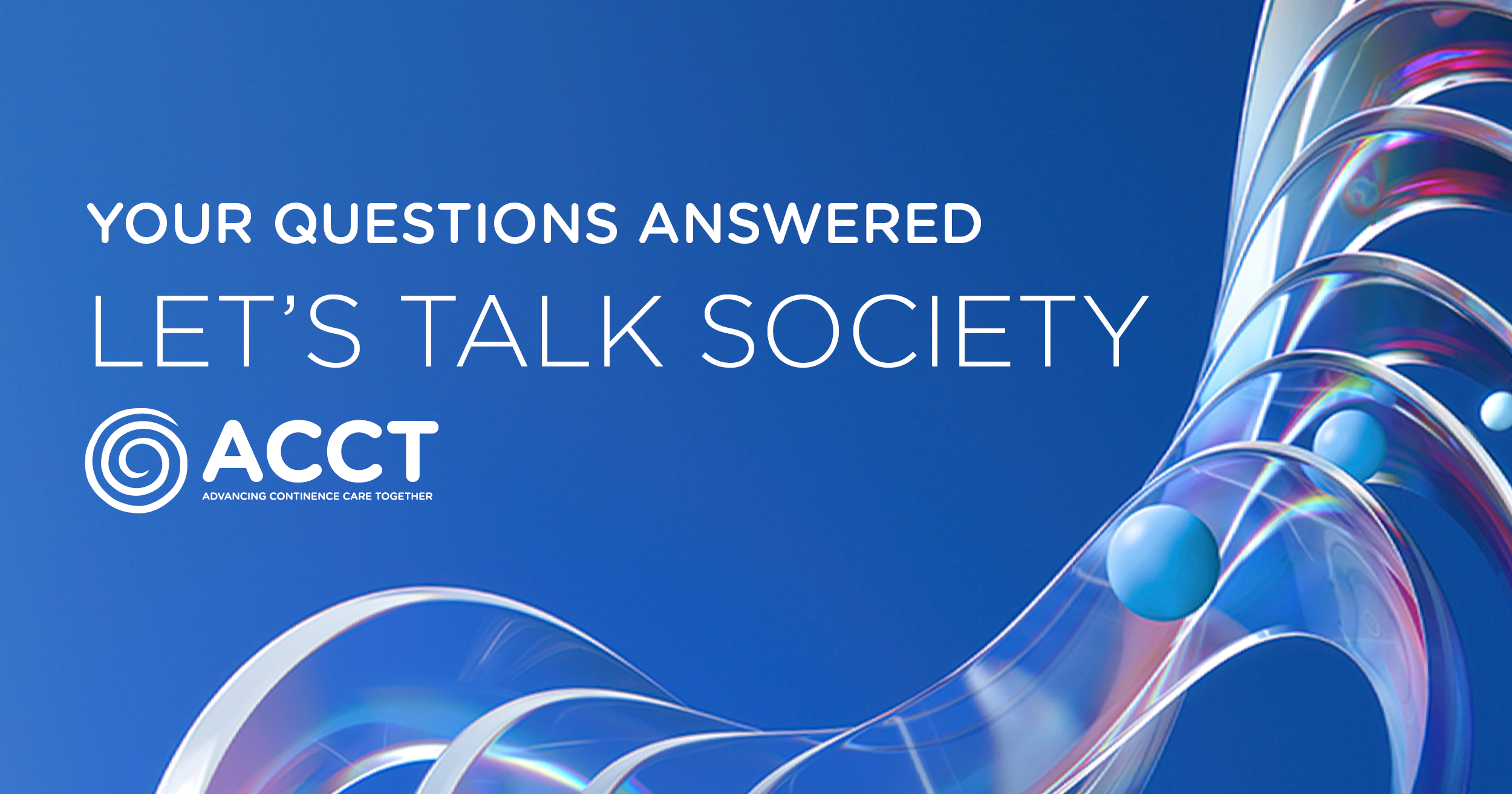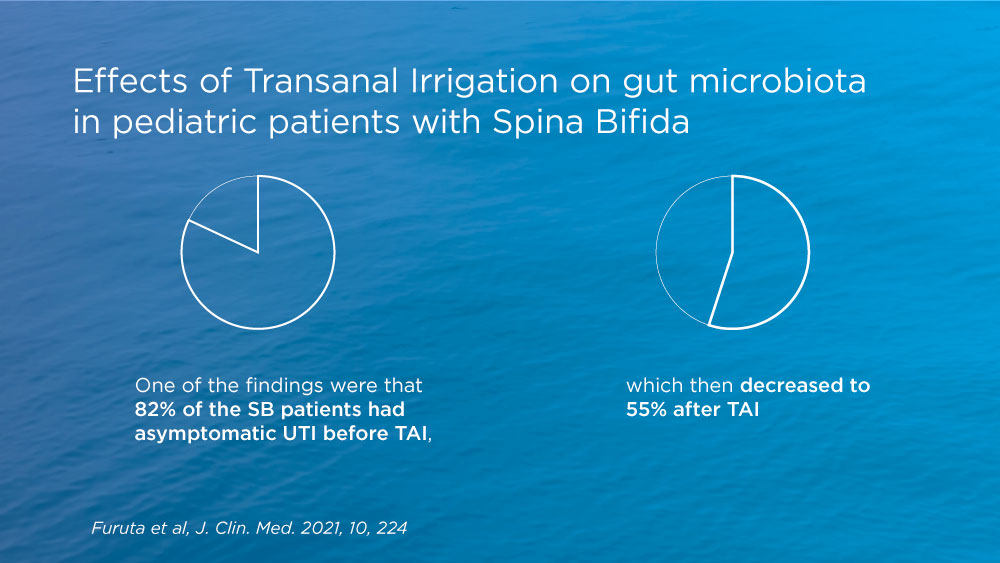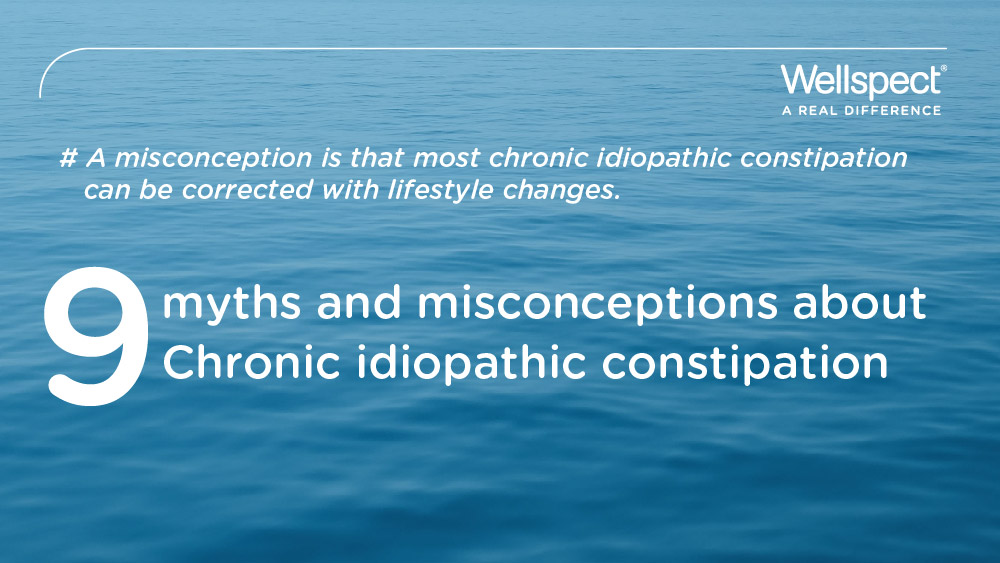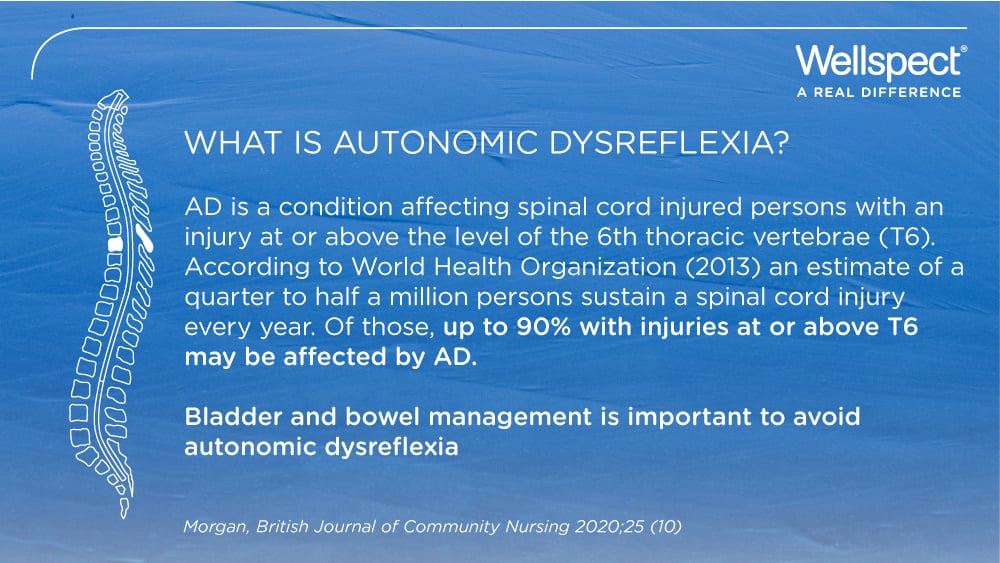Emmanuel et al, PLoS One 2021. The use of transanal irrigation (TAI) with Navina™ Smart, is an effective and well tolerated treatment for bowel dysfunction.
Read MoreTopics: Bowel management, Transanal irrigation (TAI), Spinal Cord Injury (SCI), Neurogenic bowel, Bowel dysfunction, Fecal incontinence, constipation
On May 20th, the second in a series of three ACCT live webinars took place. Let's Talk Society featured invited speakers Professor Anne Cameron, Dr Ilan Koppen and MS Specialist Nurse Roberta Motta and looked at bladder and bowel dysfunction from a societal perspective.
Read MoreTransanal irrigation's influence on gut microbiota could have a positive effect on the immune system and contribute to reduced UTIs.
Read MoreTopics: Urinary Tract Infection (UTI), Bladder and bowel interaction, Neurogenic bladder, Spina Bifida, Neurogenic bowel
Chronic idiopathic constipation, or functional constipation, is a frequent reason for seeking healthcare and referral of specialty care – despite new knowledge there is still confusion and many misconceptions regarding the condition, outcome and treatment.
Read MoreTopics: Bowel management, Bowel dysfunction, irritable bowel syndrome
Autonomic dysreflexia (AD) is a condition that may affect as many as 90% of spinal cord injured patients with injuries at or above the 6th thoracic vertebrae. This review aims to increase the knowledge and understanding of AD to ease management of the condition.
In this review, the author describes the prevalence, cause, symptoms, assessment and management of autonomic dysreflexia (AD). A spinal cord injury at or above the 6th thoracic vertebrae may cause AD in up to 90% of the cases. AD is an episodic uncontrolled elevation of systolic blood pressure of more than 20 mmHg that is caused by a noxious stimulus below the level of injury. A noxious stimulus can be a distended bladder or constipation and it is therefore important to have a good bladder and bowel management in place.
Read MoreTopics: Neurogenic bowel, Spinal Cord Injury
